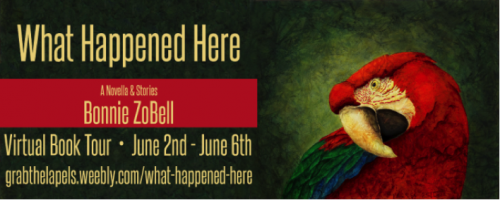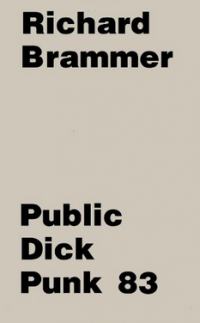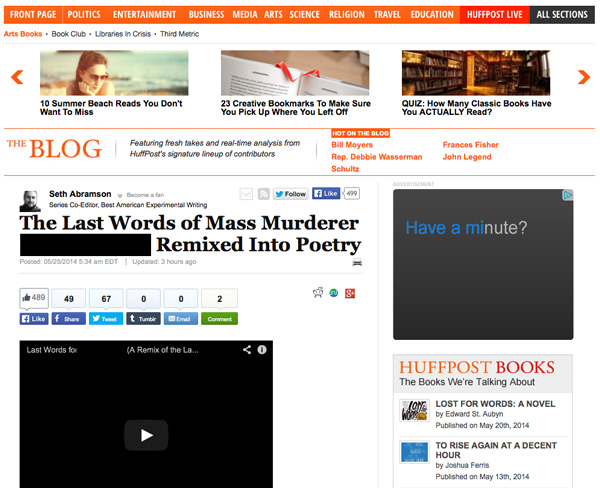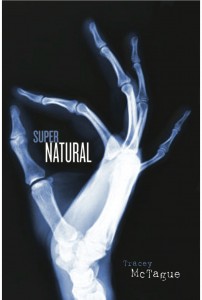Alt WTF (The Yolo Pages)
 The Yolo Pages
The Yolo Pages
Boost House, April 2014
206 pages / $15.00 Buy from Boost House
“Just between the time when one could use one’s age as a power and one uses one’s age as a crutch.” – Jack Spicer (paraphrasing Arthur Rimbaud) from “Homage to Creeley/Explanatory Notes” in My Vocabulary Did This To Me
“Alt Crit” is a term I’m pretty confident I just invented… or at any rate, hope to make some money off of for my own altruistic (see also: poetic) purposes. Everybody knows Poetry with a capital “P” is a negative economy, and that anyone who has nevertheless found a way to sell his or herself as a poet must be a genius at something. Maybe not the actual writing itself, but self-promotion, for example. By editing and publishing this anthology of poems, Steve Roggenbuck, “the first poet to be cataloged as a meme” is finally profiting somewhat from his 18,000 Twitter followers and his slew of YouTube video-monologues about poetry. When I switch on a Roggenbuck video, I feel like I’m watching dust collect on an empty stage; or someone bombing an audition for the high school play over and over again. I can’t ignore it because this is my generation, but then eventually I feel the need to switch it off, so I do.
While attempting to read The Yolo Pages anyway (I did flip through a lot of it, my friend has one…), I got the feeling it could only have been written by one person, most likely our aforementioned “Alt Lit” vlogger maestro. I say this because everything in the book has the same flat, naïve air about it… half-hearted altruism, with a hyper-moralistic identity politics foregrounded at all times. This gets old fast. There is no articulate political stance here (beyond this claim that being Vegan and straight-edge is going to somehow save the world) and no formal invention on the page whatsoever. These are mostly un-ironic lyrical poems with titles like “Accept Me.” There are some cute typos intentionally thrown in every once in a while too, as ornament.
Contributors like Andrew W.K. are in the book clearly for their fame-generating potential. K. Silem Mohammed is in it because he’s a venerable older poet and seems like a nice, charitable person. Ditto Sharon Mesmer. I happen to like Patricia Lockwood’s poetry as well, but she’s poorly represented by this selection of her Tweets… why not print excerpts from that poem of hers that went über-viral last year? Has that poem ever even appeared in print before? As his influences, Roggenbuck has cited e.e. cummings, Flarf, Walt Whitman, Jenny Holzer, Roland Barthes, Miranda July, Dada, William Blake, Surrealism, The Beat Generation, The Lost Generation, Generation X, Generation Y, The X-Files and Punk. Whatever it is, his youth is supposed to make it fashionable again. But when someone is being compared to, and/or makes a habit of comparing themselves to pretty much everything that has happened before in their medium, it becomes impossible to take an objective look and make any decision as to whether you even like it or not. You have to like it, or else you run the risk of being called out as a h8r.
Like Nardwuar, Roggenbuck is basically a hype man…another fan boy for contemporary poetry, the perfect gadabout and Web 2.0 chameleon. The videos are amazingly solipsistic for a guy who claims to be starting a morally righteous collective (privately funded by Kickstarter, of course). The bookstore of the future is opening its doors, and he’s determined to make a job for himself there. Like Pharrel, he’s probably much better off producing other people’s work than making any of his own, and he’s all about being avant-happy. I would like his videos more if he interviewed people like Nardwuar does. He could interview poets, or strangers on farms in rural Michigan, and ask them what they think about poetry. That might be a little more compelling. The strangest thing about the videos is the chintzy music in the background, which makes the work eerily reminiscent of the corporate advertisements for those expensive iDevices that allow it to happen and be distributed so widely.
If this is supposed to be an alternative, why even do a print book in the first place? On the inside cover, there’s just a bunch of social media addresses for where to send a letter, if you care to know where Boost House printed this book. There is also a very peculiar ellipsis in the middle of that James Baldwin epigram at the front, which makes me wonder if the quote is correct. They don’t even note where it comes from, because of course it comes from the Internet. Roggenbuck is a clever opportunist who knows there is a vacuum outside the walls of the MFA debt factory that needs to be filled with something… but you can’t fight vacuity with even more vacuity and paper wasting. Where are the ecologically minded poets of yesteryear? Are they seeing this? It’s enough to make a young poet run scared back to the classroom to grip that MFA degree pronto. Some maniacal workshop teacher right now is probably screening Roggenbuck videos for their students as an object lesson: “Thinking of dropping out? Well, you might end up like this…” So in that way, he has (ironically) already allowed himself to be assimilated as a booster for the very system he would have us believe he is railing against.
The Yolo Pages is not Alt Lit, meta-modernism, emo, homespun, “new sincerity” or “uncreative writing.” It’s all much too aspirational to be any of those; it’s more like some new kind of ineffective self-help poetry. So actually, it’s a lot like America’s once-favorite poncho-wearing poet and translator Robert Bly, with his whole Iron John thing, where men went out together shirtless to the woods so they could help each other bang on drums and recuperate their masculinity. Wasn’t that embarrassing enough? “Young Adult” poetry might be a better, more lucrative fit than Alt Lit. Maybe The Yolo Pages makes people who suffer from extreme logorrhea (online) feel better together. It’s all like this endless rabbit hole you’re being led down, and there’s nothing at the end but a sign that says “thanks for following.”
***
Ben Tripp is on Facebook.
June 5th, 2014 / 10:00 am
Virtual Book Tour: Bonnie ZoBell

Follow Along With Bonnie’s Virtual Book Tour Using the Link on the Banner!
Bonnie ZoBell rants about sex and the elderly:
Who is it that thinks old people shouldn’t have sex? Miguel in my story “Lucinda’s Song,” that’s who. Miguel—and he’s not alone—thinks his eighty-year-old mother, Lucinda, has no business romancing at her age, especially not with someone who isn’t his father, even if his father has been dead for years. For her part, Lucinda’s having a great time with her new beau, Ramón Fernández. In fact, they’re having such a torrid affair, she can’t get around to watering her lawn and keeps getting citations from her gated community for having brown grass. She’s never had so much fun.
And why shouldn’t she, or any other elderly people? There’s no threat of pregnancy anymore. In older generations, when birth control wasn’t as widely available, extramarital as well as marital lovemaking always came with the risk of pregnancy if women were just looking for a little pleasure. Additionally, their adult lives have been spent working themselves practically to death, at least until they retired. They’ve raised children, paid their taxes, lived in wedded bliss—or not so much bliss—and many are now living alone. Don’t they deserve having as much of the old in and out as they please?
We’re too plugged in to the airbrushed beautiful people advertisers keep throwing at us. The older we get, the more we discover that looks aren’t what it’s all about anyway. Maybe both people in an elderly couple enjoy European history, watching Glee, and naps in the afternoon. For Lucinda and Ramón, weekly bingo really turns them on. He likes her ‘tude. She’s always liked Indian-looking men. Why shouldn’t they get it on?
Miguel isn’t a bad guy. I try to understand him, because I invented him after all, and I care about all my characters. I try to understand that with his dad gone, he might feel a certain protectiveness about his ma, doesn’t like to think of her that way. But come on, guys, her parts are all working and she got along just fine before you came along. Miguel particularly doesn’t appreciate finding a bottle of personal lubricant on his mother’s kitchen counter—or that she’s threw her back out when she and Ramón were going at it against the dishwasher. Get a life, Miguel! If the sex is good enough for her not to mind a small injury, you need to move on!
Remember, if our mothers didn’t have at least a small interest in sex, we may never have been born. If you have to say something, tell her you care about her and want to be sure she’s using protection. Did you know that STDs have doubled in 50 to 90 year olds in the last decade? They’re living longer. With so many medical breakthroughs over the last century, bodies are staying healthier longer, or at least healthy enough to enjoy physical pleasure. Retirement communities are like rave parties these days. It’s no longer all about shuffleboard, looking at scrapbooks of grandchildren, or dusting cat figurines.
Lucinda and Ramón have their own particular way of making love, slow and how they like it:
“Come with me, mamacita,” Ramón said when they’d finally said what they needed to say and decided to make love. That night he helped remove her shift, she his trousers. The dim light from the bathroom bathed their wise, desirous bodies. Ramón smoothed the skin on her neck for such a long time it felt like a shiny sea stone. She ran her nails over his back until he drooled.
“Don’t fall asleep yet, papacito,” she murmured.
Love that night wasn’t about getting it over and pushing [her past, abusive husband’s] dead weight aside before he dozed off. This wasn’t to say that Lucinda and Ramón didn’t fall asleep right in the middle of everything. But it was a pleasant sleep. A siesta. And when they awoke early the next morning, they picked up where they’d left off. Ramón actually cared where those folds between her legs led, what they could do, that Lucinda felt something too, that the episode wasn’t over until she had produced a certain song in her chest.
“Mi amor,” Ramón said afterward.
A man of Ramón’s age didn’t have to finish any sooner than his woman wanted him to.
So, give your mom some condoms if you must, but remember: you weren’t found under a cabbage patch!
***
Check out Bonnie’s new collection, What Happened Here, available for purchase!
***
Bonnie ZoBell’s chapbook, The Whack-Job Girls was released by Monkey Puzzle Press in March 2013. She has received an NEA fellowship in fiction, the Capricorn Novel Award, A PEN Syndicated Fiction Award, the Los Angeles Review nominated one of her stories for a Pushcart Award, a place on Wigleaf’s Top 50, and a story published by Storyglossia was named as a notable story in story South’s Million Writers Award. After receiving an MFA from Columbia on fellowship, she has been teaching at San Diego Mesa College where she is a Creative Writing Coordinator.
#jeanettewintersonlivetweet: Sexing the Cherry by Jeanette Winterson
 Sexing the Cherry
Sexing the Cherry
by Jeanette Winterson
First Edition Bloomsbury, 1989. Grove Press Reissue, 1998.
192 pages / $14.95 Buy from Amazon
I just read a review of Sexing the Cherry online, through JSTOR. The article is written by Rosellen Brown, and is published in The Women’s Review of Books. It is called “Fertile Imagination.” Considering the content of the book, that title is funny to me. I’m honestly not sure if the review is favorable or not. She keeps praising the ‘inventive arbitrariness’ of the novel at the end of it, seemingly out of nowhere, somewhat condemns the thin veil over what she refers to as Jeanette Winterson’s ‘wish-fulfillment fantasies.’ That got me thinking about this sandwich I bought from Wawa earlier, and how when I was walking back to my house after buying it, I thought about how Jordan is very much like the titular character of Henry Fielding’s The History of Tom Jones. They are both foundlings, both of them are charismatic and somewhat sensitive; somehow my train of thought disappeared though, and my mind drifted from the process of it, like a moving vehicle. In this review I learned that Jeanette Winterson is herself a foundling, and much of her character is apparent in Jordan. Does this mean Jeanette Winterson is also like Tom Jones? By the transitive property, it would seem so. But does the transitive property define reality? I’m not sure, but if it were so, this would lead to a comparison of Tom Jones’s Squire Allworthy and Sexing’s Dog Woman, who, I feel, are not compatible characters at all. I am wondering what would happen if Allworthy and Dog Woman were in the same room. She is so used to men literally ‘pointing dicks’ at her, forcing/inciting her to violence against them. Allworthy is not that way at all, though. He is, I feel, one of the most benevolent of Fielding’s creation. Maybe he just lives in a more humanistic era than Dog Woman. The next paragraph is imminent; in it I will discuss what happened when I first read Sexing the Cherry.
I was on the third floor of a college library with Sexing the Cherry on my lap. I was tired. I wasn’t thrilled to be in the library, even though generally I like it there. I decided it would help me stay attentive if I ‘livetweeted’—that is, ‘to tweet in real time’ my process of reading it, by means of phrases that I found interesting maybe. I did this for around two hours. A list of things I found tweetable:
So, there is that. Looking at it now, it’s kind of like a poem. Some of the phrases are taken out of the contexts of the sentences they appear in, for my linguistic pleasure, and, I think, yours as well because you’re reading this. I mean, what is context really, especially considering the text of Sexing the Cherry, wherein there is no context given to the reader; through one’s own constructions/deconstructions/discursive formations/ideologies/psychoanalyses/feminist reconstructions only can meaning be derived from this book. The crux of this review, really, is being set up currently. I want to define something about this book—not make a guess as to what gender some fruit represents, or what is represented by the splitting of said fruit. Truly make a claim about what something in this novel ‘means.’ Here is my theory about Sexing the Cherry.
It is clear, from the outset, at least, if one reads the inscriptions before the text begins; those two things—the one about the Hopi tribe’s language lacking tenses for time and the other about matter being mostly empty space—that the universe is not as it seems. The one in the book, I mean. There is deliberate anachronism not only in the physical setting of the novel (I’m not usually one to judge, but Dog Woman and Jordan live in a pretty ‘temporally fucked’ part of 17th Century England) but in the way time is presented through language and the novel’s linguistic structures. Sexing the Cherry presents a universe in which time and space are not interwoven into our coveted, Einsteinian fabric; indeed, they are separate, and ever-colliding. These collisions are marked by pictures of fruits and, in the middle of the novel, fairy-like relics. As a result of the lack of connection between time and space, perspective is fluid; not how our universe’s perspective is fluid, in that a worldview can change through a human’s own will, but that dominance of perspective is constantly shifting. The rift between special coordination and the motion of things causes all consciousness to warp together, and the dominant perspective is in omnipresent shift. That is why every time there is a fruit somewhere, the narration seems to change and, towards the end the fruits are all split—this is an indicator of the unstable temporality becoming even more and more so. That’s pretty much my theory about why Sexing the Cherry is so weird, temporally and spatially speaking. On to another topic, I guess—
Now I am reading another JSTOR article about Sexing the Cherry, called “Innovation without Tears,” this one written by a man named Gary Krist. I think it’s a man. Regardless, it begins with the usual jab at postmodernism; I find that most reviews of apparently ‘postmodern’ texts begin with a jab at postmodernism. Everybody loves to hate postmodernism, it seems—so postmodern. After that, he writes about a book by someone who I always confuse with ‘Conan O’Brien,’ even though his name is ‘Tim O’Brien.’ Nevertheless, I find it interesting because I remember some friends from high school who, being in a more advanced English class than I was, were assigned to read a book called The Things They Carried. It’s about war and I was always glad I didn’t have to read it, but reading about it right now makes me want to read it because it sounds interesting. Eventually, the article somehow ends up at Sexing the Cherry, after talking about the ‘fluidity of time’ or something. Similarly to the review I read before I started to write this, it began by praising the exciting, ‘fantastic meaninglessness’ of the novel, though arguably, in this article, making more of a case for its psychological, sociological, and philosophical implications; but after that, just like before, the flaws of it are presented—humorously, I feel, in this article, with the essayist stating his reluctance to dig at the novel due to admiration, but still does so immediately—one by one, from the seeming fusion of narration towards the end to the novel-wide abuse and unfairness towards men (the first article I read actually contained a sly joke about genital mutilation). Although, at the conclusion of the section devoted to Sexing the Cherry, a statement about its essentiality to the realm of ‘unconventional fiction’ clears up any question about whether the review is positive or not.
Does any of this make sense so far? If so, does it make more sense than Sexing the Cherry? If not, does it make more sense than Sexing the Cherry? Everyone acts as though Sexing the Cherry is such a strange book, but nobody says so about Beloved, and I actually think they are narratively very similar. Many of Toni Morrison’s novels are incredibly unconventional, but are generally praised simply as masterworks of fiction—rarely does someone tell me they read a Toni Morrison book and thought it was ‘weird’ or that it ‘didn’t make sense.’ I would normally say, I think, this happens because Toni Morrison has a clear agenda on her hands; this becomes problematic though, considering the parallels between Jordan and Winterson herself, and her obvious schema as a post-gendered woman. This is all so confusing. I think that might have just been a gender pun. I couldn’t read Sexing the Cherry without wanting to draw little fruits everywhere and write an epic poem. It even made me want to write a book of ‘unconventional fiction.’ I have done none of these things in the recent past.
***
Ben Morgan is person who writes, runs an online press thing called ‘Thought Process‘ and takes pictures of trees. Currently, he has two collections of poetry published online, as well as pieces forthcoming in SMASHEDCAT and TheNewerYork. (Follow him on twitter @ben____morgan)
June 2nd, 2014 / 10:00 am
Antoine Volodine’s Minor Angels and the Generative Faculty of Hopelessness
 Minor Angels
Minor Angels
by Antoine Volodine
University of Nebraska Press, 2008
166 pages / $19.95 Buy from University of Nebraska Press or Amazon
When I think about different world cataclysms (cataclysmic for the human species, anyway)—natural disaster, famine, nuclear fallout, genocide, slavery—the idea usually resides in some abstract part of my brain. In any event, it’s usually nicely framed. It seems there are few reasons to feel immediately concerned by the prospect of a major disaster. I’m living in a home, and a country, and a relatively safe historical moment for people in my demographic. Even those of us who discuss the possibilities from a privileged historical and socioeconomic position usually reserve real urgency—the material kind—for a later, never-to-arrive date. That’s probably a fair position to take for the time being for people like us, even if it is cynical and myopic. But if you’re interested in writing Marxist post-apocalyptic fiction, or if you want to make people feel immediately concerned about the ahistorical reality of humanity’s failure, which usually presents itself at the bleak and neglected margins of the event horizon (which is temporal as well as spatial), then it would seem to be of the greatest importance to make that reality feel both immediate and visceral. In Antoine Volodine’s Minor Angels we find ourselves thrown into a strange world composed of forty-nine short stories, which Volodine calls “narracts.” The novel takes place in the centuries-old wake of an apocalyptic event, after the rise and fall of Communism. In this world, Volodine’s characters (which feel more like ghosts, fading into and out of identity with one another and even with the author—who contains many of his own pseudonymous creations) are left to cope with the aftermath. While the event that led the world and its forty-nine survivors to their current condition is never precisely or definitively articulated in the text—something to do with nuclear fission, maybe?—it becomes clear that the mysterious narrators of Minor Angels are coping in very real, strange, and uncanny ways with the fallout of the disaster which is humanity at large. In this way Volodine makes the wages of his text boldly universal while we, the readers, are left to sift through the wreckage of the disaster.
In the twenty-second of Volodine’s narracts, the text performs a metafictional gesture that goes beyond our typical understanding of the metafictional impulse as a reflexive act. Narrated by Nayadja Aghatourane, we soon learn that the text’s relationship to the world outside its borders is much more complicated, interesting, and affective than that:
Twenty-one, and soon twenty-two strange narracts, no more than one each day, composed by Will Scheidmann in your presence, and when I say Will Scheidmann I am of course thinking of myself. (68)
So if we map it out, the narrator of this narract is telling the reader that her act of narration is in fact being narrated by Will Scheidmann, and that this is all being done in the presence of a “you.” And then we can’t forget the image of Volodine himself sitting down to write his forty-nine narracts, “no more than one each day.” The reason this metafictional impulse reads differently than something we might have seen in a story twenty or thirty years ago is that the reflexive act isn’t presented as an event to be discovered but as something taken for granted, an inexorable, omnipresent reality that is always at work in the text.
On the most basic narrative level, while living in a nursing home Will Scheidmann’s witch- and fury-like grandmothers have created Scheidmann through an act of magic in the hope that he’ll save the world from destruction. Instead of doing this Scheidmann eventually restores the fundamental dynamics of the capitalist system, to the detriment of the world at large. As punishment for his decision to reestablish the capitalist order, Scheidmann is sentenced to death by firing squad, but at the last instant, with their guns drawn, the grandmothers change their mind. Rather than executing him for his crime, Scheidmann’s grandmothers listen to Scheidmann as he recites the forty-nine narracts that make up the entire text of Minor Angels. This makes the grandmothers the subjects of the second person narration quoted above. So, when the “when I say Will Scheidmann I am of course thinking of myself” moment arrives (and moments of destabilized and disseminated identities like this—both human and non-human in nature—are profuse throughout the forty-nine narracts of Minor Angels), it isn’t just another transparent reflexive meta-textual moment at play. In a way it’s actually the opposite. It’s the text’s refusal to recognize its creator. It’s a deflection or déplacement of the narrator, the arranger, the author. The text tells us, and I paraphrase: “It isn’t me who’s writing this. It’s her. No, it’s him. No, it’s him.” The text never stops pointing fingers. The text is a refusal, a coping mechanism. And if we can agree on this point then it starts to look like the whole of Minor Angels is a kind of diary of coping mechanisms, written within a historical reality from which the bleak end is always already playing itself out.
As the twenty-second narract continues, it’s hard not to see the world described as our own. The walls are down, but it’s as though there’s no one there to see what has been left:
I would have liked someone to speak to me of the men and women I’d told of, [I would have liked them to say to me]: ‘We also belong to the dying humanity you describe, we too have come to this point, to these final moments of dispersion and nonexistence,’ or else ‘You were right to show how the joy of remaking the world has been stolen away from us forever.’ But there was no on whispering beside me, no one encouraging me to continue. I was alone, and suddenly began to regret it.’ (69)
Is this a story about the bleak end of humanity and its world, or is it about the deep solitude and loneliness of one anachronistic person, or is it about the end of literature and of the generative act of creation itself? We ask ourselves the question, and the answer has to be “Yes.”
May 30th, 2014 / 10:00 am
25 Points: Public Dick Punk 83
 Public Dick Punk 83
Public Dick Punk 83
by Richard Brammer
East German Sunshine, 2014
93 pages / $5.98 (print version) $1.28 (e-book)
buy from Amazon
1. This is Richard Brammer’s second book following on the heels of last year’s MDMA and Menthol Cigarettes which first discovered and borrowed on Alt-Lit library. This one isn’t free but it’s still pretty inexpensive (especially the e-book but I’d recommend the print version).
2. This is to be the first in a long line of Public Dick Punk… books. The next is mooted to be named Public Dick Punk 82. We are not sure about the significance of the ‘83’ or the ‘82’. These poems/writings appear to be set in the present day.
3. Number 2 may be a lie as previously Richard Brammer stated that his second book was to be called ‘Selected Serotonin’ and fabricated (presumably fabricated?) an interview with retired English ballerina Darcey Bussell about the new book. He said the new book would be a homage to Teenage Fanclub album ‘Bandwagonesque’ but there book never appeared and was never mentioned again.
4. Public Dick Punk 83 is an extremely fast read, the reader flies through it and then wishes to fly through it again afterwards. In the words of poet Michael Hofmann it is ‘a machine for re-reading’.
5. It contains many proper nouns and names and brands and theseare collected in a particularly unhelpful index at the back. I will now list a few of these things: Michelle Williams, the Roland 303 drum machine, the NSA scandal, cupcake lesbian, Bjork, Bourne Supremacy, The Fall, Dreampop, Instagram, John Updike, Fractional Reserve Banking, Estonian Shoegaze, Google, TV, Hipster and PDF, Husker Du.
6. The index also elucidates on which pages basic conjunctions and articles such as ‘the’, ‘and’ and ‘if’ appear on. For instance: ‘if’ appears on pages 16, 29, 34, 37, 47, 55, 65, 70, 72, 84, 87, 92, and 96.
7. The poems/writings are split into five sections: ‘Log In, Remember me’, ‘Thrift with outside detractors’, ‘Food and Activities Outside’, ‘On Coloured Vinyl’ and ‘A short history of all memory’. None of these section titles appear to have much to do with the poems that they envelope but sometimes you think ‘Hey there’s a plan, here!’ so sometimes the reader thinks they do.
8. The book is very hipster friendly and is unapologetic for that, defiant even. It is dedicated to ‘the unreconstructed hipster’.
9. There is a poem about a girl named Edie whose name ‘isn’t Amy’ and who has ‘a cool cervix’.
10. The poems/writing themselves are generally written in a breathless kind of way with many idioms recognisable from social media but also from a variety of registers. You get the impression this writer hasn’t only grown up on the internet and references to early 80s style magazines such as ‘The Face’ and to a number of bands much beloved of what was, at one time, called ‘college radio’ (now known as bands that Pitchfork are likely to review) crop up throughout. As does late-80s, early 90s British rave culture. You never know, maybe he’s just Googled alot of this ‘vintage’ stuff.
May 29th, 2014 / 12:00 pm
On Bullying: Isla Vista, Seth Abramson, and Social Media

How do you ethically navigate your media?
When I heard today about the shootings in southern California, my first thought was, “oh, again?”, and my second thought was, “Rachel is in southern California.” After running to the computer to confirm that the shootings took place far enough away from where my wife is, and after feeling huge relief none of the victims were my loved ones, and after feeling momentary guilt for that relief in the face of others’ grief, I felt the now-usual feelings of sadness for the victims and their loved ones, frustration at the cultural attitudes that enable and produce this now-usual violence, and renewed knowledge of my helplessness to protect those I love from “random” tragedy.
I then did my usual thing of scanning the web for information about what went on and what lead to it. I read a good deal of the killer’s memoir/manifesto. I noted his childhood joy of opening a Pokémon booster pack to find a Charizard, his journey of dyeing his hair partly and then full-blond, his use of the term “playdate” to talk about hanging out with people when he was 17, his emotional connection to his N64, and his reverence for brand names. I realized he had probably killed his roommates before I saw any media mention that he had killed his roommates. I read that he had planned to kill his younger brother and his stepmother. I saw an excruciatingly self-involved man who in many ways still thought as a boy, and who had never been able to understand other people are human, like him.
After thinking a lot today about empathy—the visceral recognition of yourself in other people, of other people in yourself—and reminiscing some about feeling unloved, unattractive, outcast, and misunderstood, I scrolled past a Facebook post about Seth Abramson’s remix of the killer’s YouTube confession. I thought, “too soon!” and scrolled on. And then later scrolled past it, and then, on seeing it for the third time, read it. In the piece, Abramson reorganizes the killer’s words into something life-affirming. Rather than railing against the dumb beast blond women and the thugs their animal minds force them to couple with, Abramson’s piece intends itself as a message of comfort, understanding, and love for “Every single girl. Every single man. (Even obnoxious men!)” Even Elliot, the killer.
I then read the comments on the Facebook post.
Finding the light: a review of a very short memoir by Ethel Rohan
 Out of Dublin
Out of Dublin
by Ethel Rohan
Shebooks, May 2014
Ethel Rohan’s Out of Dublin opens with an image I’ll not soon forget:
At the center of this memoir is the story of breaking and healing. It’s a personal tale with broad appeal, because, even as it retells one family’s many stories, it reminds us of the resilience of human beings and our desire to keep holding on, even in the face of the impossible.
I’ve been thinking about the personal memoir quite a lot lately: how much to tell, how much to leave out, why we feel compelled to tell our stories in the first place. Rohan carries two missions deep within her: a need to articulate her own story for herself, and a desire to write it down and share it – because what else would an individual of this capacity for feeling and words do?
The memoir contains painful details of life growing up in Dublin and the struggle to leave – and the reader knows from the opening that there will be wreckage along the way. Even at a young age, with five dynamic siblings and two complicated parents, the small version of Ethel has difficulty finding her place. She’s a girl searching for her song, trying to be heard. But she’s also a girl with unremitting devotion to her family. And this duality permeates the memoir: a desire to understand where she fits in a complex and painful family history, and the dedication of a daughter who loves her parents and family, flawed as they are. The writer is frank about the tough things: violence, abuse, anger, secrets. But a tenderness persists as well, amidst layers of confusion and disorientation. Straightforward language and subtle affection make this a small splendid thing.
At 10,000 words, this memoir is a glimpse at a whole life. In this way it’s not unlike flash fiction. And like Rohan’s short fictions, this story captures something large in a very small space. It is paced with alternating tempi, like life itself: sometimes the narrative lunges forward at break-neck speed and sometimes it offers up quiet moments that linger long after the reader has passed them by. Near the beginning there is a sequence that races at you, a 440-word sentence that could be an independent piece of flash fiction all its own, recollecting childhood beach trips in a Morris Minor, complete with sandy sandwiches, surfside swimming and ice cream treats – but much more than that because the sandwiches are sandy (“granules cracking between our teeth”), the swimming is competitive and “pretend” and the ice cream treats come with a side of nicotine and hard liquor. There’s also a hint of blindness on a bright summer’s day, darkness coming fast. Woven into this recollection of a family together is a story speeding to its inexorable doom. The details in this passage are carefully placed yet relentless – necessary and urgent. The memories captured here come in a flood, as if it’s important to pour it onto the page, before they are lost, like sand slipping through one’s fingers on a hot afternoon at the shore.
On the other hand, that cascading memory is balanced by short moments exhaled sharply. There’s a girl briefly dancing, for example,
“… my moves stolen from TV and ballerinas inside music boxes. I was helium. Stardust.”
The “I” is alone, already scattered to the universe, willed away from her roots. The “I” is fragmented, as are the sentences. Small breaths of life. And the “I” struggles throughout the story – moving forward and making connections back. The individual frees herself in ways she can, even using geography to her advantage, but the devotion and honour for her parents and home is never broken.
May 26th, 2014 / 10:00 am
Secrets, Secretions, and Sorcery in Tracey McTague’s Super Natural
 Super Natural
Super Natural
by Tracey McTague
Trembling Pillow Press, Jan 2013
116 pages / $15 Buy from Amazon or SPD
Published last year by New Orleans’ small but feisty Trembling Pillow Press, Tracey McTague’s Super Natural is a cheeky and tongue-twisting phrasebook for the postmodern alchemist.
Drawing from multiple languages, cultures, and folkloric traditions, McTague casts her poems against a shadowy backdrop of blurring mythologies, and even frequently intersperses her incantatory verse with prose passages detailing various cultural beliefs, mystical doctrines, and superstitions. However, like any true occultist, McTague focuses not on the lofty ideals and abstractions of a discrete “spirit realm,” but rather on the reactive mixtures and metamorphoses that enrich the concrete particulars all around us.
In fact, each of the book’s three sections can be seen as underscoring the visceral physicality of magic, though through differing folkloric symbols and disciplinary lenses. The first section, “Thirst,” centers around the notion of the “evil eye,” which McTague explicitly associates with both “female genitalia” and “the social flow of sexual rights”—simultaneously grounding her occult terminology in political reality and imbuing that political reality with new occult significance (15). Yet the poems of this section (like all that appear in the book) are far from dry or humorless in their social commentary: among the jokiest lines concerning sex and gender are “Antigone brand condoms,” “palpate your god particles,” and “I’ve killed better men with much smaller guns” (19, 22, 26).
The next section, “Ancestor Midden,” turns from politics to ancient history, explaining “midden deposits” as “archeological material including animal bone, shell, botanical material, vermin, and other artifacts and eco-facts associated with past human occupation” (49). Here, McTague explores mystical beliefs and customs surrounding death and veneration—from “bird-heralds” to hallucinations, “transmutations” to shrines built from saints’ body parts (54-55, 58, 73). But again, given her subject matter, McTague’s language remains remarkably concrete and earthy, insisting in poems like “Tenebrosi” that “divinity” can fuse with “whisky breath,” a “miracle” can hide “under…aprons,” and even “revelation[’s]” “transmission [is] corporeal” (57).
The third and final section, however, is perhaps the most explicit of all about McTague’s commitment to “science” over “religion” even in her sonic brand of sorcery. Entitled “Contagion,” this section openly defines “magic” in terms of physical “control” over “impersonal forces,” to be contrasted with the personal “conciliations” of religion. Citing James Frazer’s The Golden Bough to explain the “Law of Contagion,” McTague investigates the various “frantic,” “smitten,” and “vehement” ways in which “things [that] have once been in contact with each other continue to act on each other at a distance,” using such grounded biological examples as “dinosaur…/ scales sprout[ing] feathers” and “expired breast milk” (89, 107, 113).
Depending on their attitude toward softer sciences like linguistics and etymology, however, readers may find themselves either enchanted or stumped by Super Natural’s swift transitions from English into Latin, French, Italian, or German. Not surprisingly, McTague conjures her witchy middle ground between “science” and “religion” by invoking Modern English’s wealth of Latinate terminology on both sides of the divide, using titles like “mors osculi” (“death by kiss”) and “melancholia fumosa” (“smoky sadness”) to accentuate the ancient kinship between chemist and alchemist (30, 58).
Yet of course, for McTague, who insists so vividly on the rich materiality of magic, this kinship is not only conceptual but also linguistic and gendered—i.e., historically embodied. Spring-boarding from Frazer’s description of magic as modern science’s “bastard sister,” Super Natural targets the “fluid” mutabilities of language and of the female body to demonstrate the grotesque gyrations of its paranormal universe (Russo 8; Bakhtin 339). For example, in “Thirst,” McTague parses the idea of the “evil eye” at one point through the Latin etymology of “envy” (“invidere: to see”), at another through its association with “drying out” life’s necessary “liquids”—especially breast milk (15, 24, 63). By narrowing in on such linguistic and corporeal metamorphoses throughout her book, McTague points to the secret-making slippages in both words and bodies that ultimately grant them their transformative social power.
May 23rd, 2014 / 10:00 am
25 Points: Dear Lil Wayne
 Dear Lil Wayne
Dear Lil Wayne
by Lauren Ireland
Magic Helicopter Press, 2014
62 pages / $11.00 buy from Magic Helicopter
1. Immediately I am reminded of Joe Wenderoth’s Letters to Wendy’s. The cover to his book and Dear Lil Wayne even kind of look the same.
2.

3. The dedication of the book goes to Lil Wayne, but below that another dedication/statement reads: “hip hop, you saved my life.” I think this is particularly poignant. Sometimes when bands are interviewed they’ll say something like, “We get letters from fans telling us that this song/album helped them through a hard time.” The project of this book is proof of the kind of power music can have and I totally relate and understand, as I’m sure many other readers probably can, too.
4. The book has a type of preface in which Ireland gives us some information about Lil Wayne, primarily concerning his incarceration. This preface ends: “I sent these letters to Lil Wayne during and after his incarceration. He never wrote back.” There’s an almost even split of letters written while Lil Wayne was in jail and after he was released.
5. I wouldn’t go so far as to say Dear Lil Wayne is a form of hero worship, but rather an incarnation of the advice, “write about your obsessions.”
6. And in this writing through obsession, Ireland weaves together the comic and tragic for very memorable poems.
7. For example, “September 17 2010”:
Dear Lil Wayne,
Jason and Furst say they get fear boners. Do you? Probably not. Jason says there’s like a Nicaraguan death squad after his dick. Does this mean boys are just as scared as girls? All this time I was sure it was a joke when a boy liked me. In these cases, I don’t get fear boners. I just feel kind of bad.
8. From the first sentence this poem is engaging. The following “Do you?” and “Does this mean boys are just as scared as girls?” maintains a move that appears throughout the book: Ireland is almost always asking Lil Wayne questions in her letters.
9. “September 21 2010” begins, “Do people think you are funny when you are actually really sad?”
10. “November 5 2010” (the day after Lil Wayne’s release) begins, “Do you feel different yet?”
May 22nd, 2014 / 12:00 pm
Virtual Book Tour: Heather Fowler

Heather Fowler’s fourth collection of fiction speaks the language of need. Desperate, obsessive, even demented need—both emotional and erotic—is voiced by characters ill or ill-advised. From cyber to stalker, illicit, explicit, tender and tedious, the relationships in Elegantly Naked In My Sexy Mental Illness translate love and lust into disorder. How we hear our own need and the way it sounds to others proves in these enthralling stories an imperfect but utterly captivating conversation, a destructive yet dynamic discourse between well-being and disease, images and words.
Heather drops by HTMLGIANT to discuss the theme of mental illness in her new collection!
***
 Why I Wrote About Mental Illness:
Why I Wrote About Mental Illness:
I was inspired to write about mental illness due to many factors. Each story has a different question that caused its creation in my body of work. In hindsight, I think I meant this collection as a whole, due to its thematic connections, as an exploration of the psyche—a way to open up discussions about degrees of mental illness, as well as broadening readers’ minds with sympathy for those affected. As a sensitive person who has witnessed a lot of painful circumstances, I think I’ve always been curious about what causes unusual behaviors, erotic and otherwise.
When Sex and Love and Mental Illness Meet:
Elegantly Naked in My Sexy Mental Illness addresses human interaction more so than strictly defined mental illness. For example, in the real world, lovers are often perceived to be insane. It’s no wonder we have household terms like “crime of passion” and “temporary insanity,” but love’s insanity is one Elegantly Naked approaches from many angles but few labels. In one story called “Ever,” a character named Caroline Light is relentlessly pursued by a romantic stalker, and, due to the long duration of the stalking, she receives little to no continuous support from friends and family. What happens next? Her guard drops and she’s killed. Is her stalker a psychopath with malignant narcissism? A sociopath with a borderline personality? Perhaps, but I’m more interested in the effect on characters’ lives than specific diagnoses.
Disorders often have diagnostic overlap. Sometimes people carry a world of trauma in their heads, multiple issues. In the book as well, I have a piece called “The Gray Fairy” in which a young mentally ill character must be watched constantly. She hears voices—but also suffers the will to self-harm, anxiety attacks, dissociative disorder, depression, PTSD, and more. She’s a hard character to love with any security of reciprocity, but I explore the idea of her caretaker platonically attempting to get closer—until the dysfunctional home family dynamic forces the outsider out. There’s something fascinating and horrifying in that idea for me, the idea that those who harm can care more about protecting their reputations than exploring what ails their damaged daughter.
In another story, “His Other Women,” I explore a female narrator in love with a womanizer, whose inability to know whether she reads him correctly becomes an emotionally traumatizing spiral of self-induced doubt, abnormal thoughts, and paranoia: “But your cheating bastard has his claws in Clarissa, you know, you think…Sometimes, you imagine yourself and these women as a herd of sick sheep that oddly want to comfort one another. Sometimes, you want to make love to his women, every single one of them, so that you can enjoy the pleasure of taking what he has enjoyed.” She desires erotic transference, a shared state of reduced pain.
In each of these pieces, in different ways, I’m interested in causes of fracture in relationships and deviations from “normal.” I’m interested in the idea of psychotic breaks—the shifting balance of how perception impacts a construction of “sanity” that can change by the action or hour. READ MORE >
